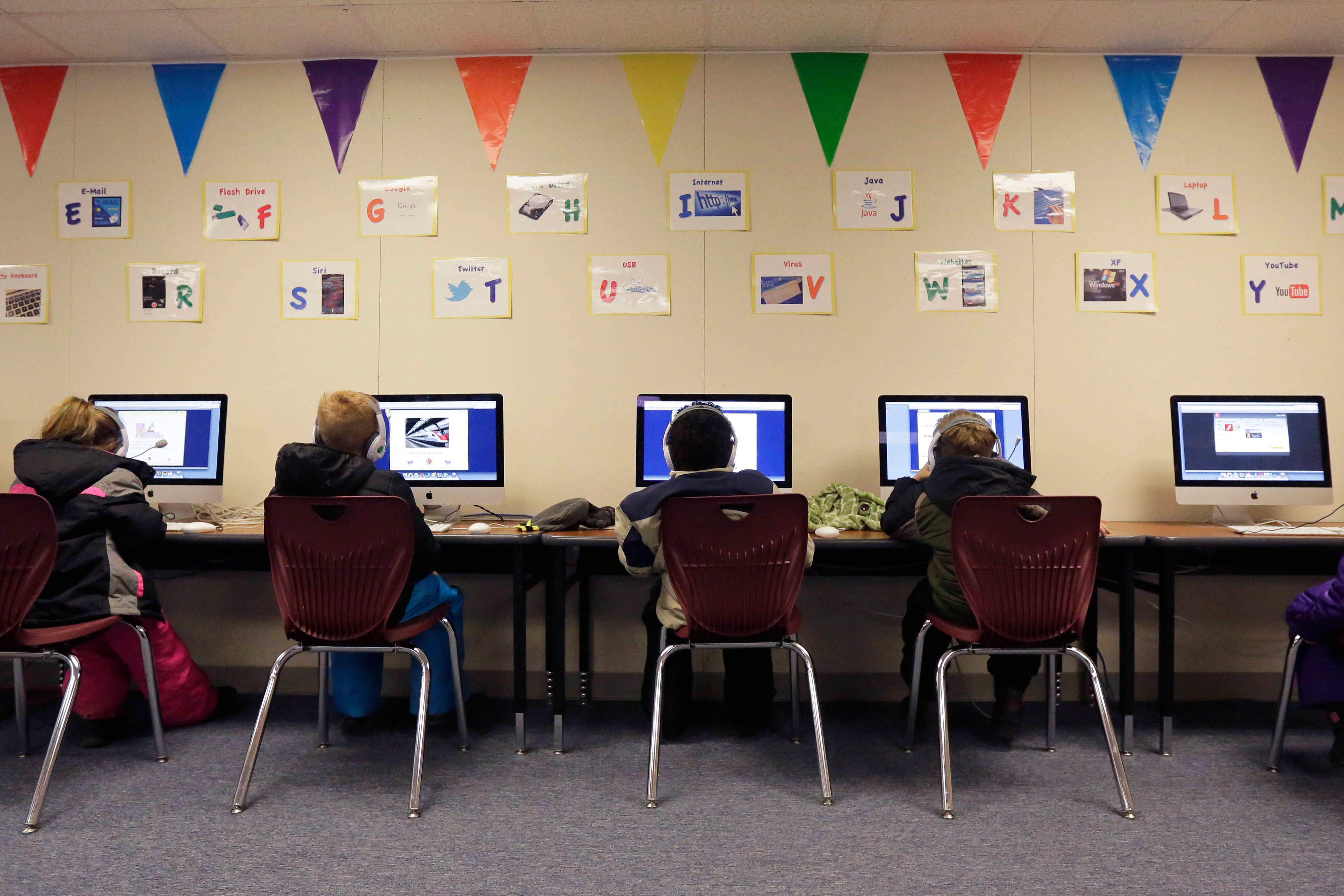North Dakota House passes school gender pronoun prohibition
North Dakota public schools and state agencies would be prohibited from using any pronouns for students and employees that don't reflect their sex at birth, under a bill approved by the legislature

Your support helps us to tell the story
From reproductive rights to climate change to Big Tech, The Independent is on the ground when the story is developing. Whether it's investigating the financials of Elon Musk's pro-Trump PAC or producing our latest documentary, 'The A Word', which shines a light on the American women fighting for reproductive rights, we know how important it is to parse out the facts from the messaging.
At such a critical moment in US history, we need reporters on the ground. Your donation allows us to keep sending journalists to speak to both sides of the story.
The Independent is trusted by Americans across the entire political spectrum. And unlike many other quality news outlets, we choose not to lock Americans out of our reporting and analysis with paywalls. We believe quality journalism should be available to everyone, paid for by those who can afford it.
Your support makes all the difference.Public schools and state agencies in North Dakota would be prohibited from referring to students and employees by any pronouns that don't reflect the sex assigned to them at birth, under a bill approved by the legislature.
The House approved the bill 60-32 on Wednesday. It passed the Senate last month and now awaits the signature of Republican Gov. Doug Burgum.
In 2021, Burgum vetoed a bill that would have restricted transgender students from participating in public elementary and secondary school sports. But Burgum has not said publicly if he supports this latest measure.
The bill is among hundreds nationwide that are taking aim at nearly every facet of transgender existence, from pronouns to bathroom use to health care to athletics. In North Dakota, similar bills to restrict transgender athletes have passed the House this session with veto-proof majorities. The Senate has not yet voted on them. Last week, Wyoming became the 19th state to ban transgender athletes from playing on girls or women’s sports teams.
“It’s another week of a legislative session, and we have another bill that’s telling certain people that they have value or don’t have value in our state,” Democratic Rep. Josh Boschee of Fargo said as he urged lawmakers to vote against the pronoun bill.
Right before the vote, Republican Rep. SuAnn Olson of Baldwin countered: “Five years ago, this whole pronoun thing wasn’t a thing. It puts teachers in the very difficult position” of keeping up with students who switch their pronoun, she said. “It’s just a common-sense bill that deserves a green vote."
The bill would not criminalize teachers or state employees. And if a teacher received approval from a student’s parent or guardian — and from the school administrator — the teacher would be allowed to use the pronouns a student prefers.
Although the measure also affects state employees outside the schools, Wednesday's debate focused mostly on educational staff who would be affected. Supporters said the bill would ease burdens on teachers and create better learning environments for students
The bill would allow teachers to “rest with relief that they only need to remember one name and (one) set of historically recognized biological pronouns,” Republican Rep. Lori VanWinkle, of Minot, said in support. She added that the bill would instill confidence in parents that their kids are safe at school and create learning environments without “social distractions.”
Opponents including Democratic Rep. Mary Schneider of Fargo cited the testimony of countless people who argued the bill would harm LGBTQ youth: mental health therapists, school counselors, social workers, suicide prevention advocates, church leaders and more.
Schneider noted that these experts said the bill would not protect kids or promote learning, because “the real threats to children are poverty, hunger, lack of health care, gun violence, bigotry, social pressures, mental health and bills like these."
Democrats and Republicans voted against the bill.
A survey by The Trevor Project in 2022 found that 45% of LGBTQ youth seriously considered attempting suicide in the previous year, but that those who were supported socially or at school reported lower rates.
___
Trisha Ahmed is a corps member for the Associated Press/Report for America Statehouse News Initiative. Report for America is a nonprofit national service program that places journalists in local newsrooms to report on undercovered issues. Follow her on Twitter: @TrishaAhmed15